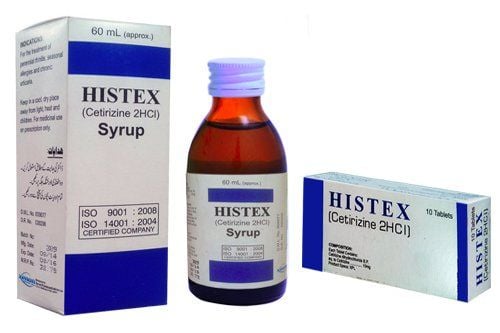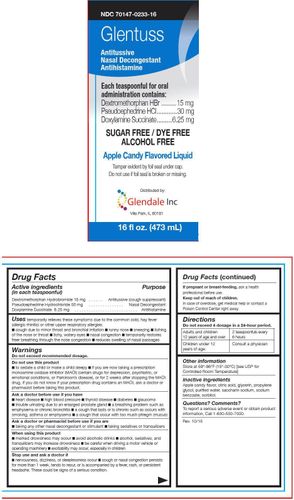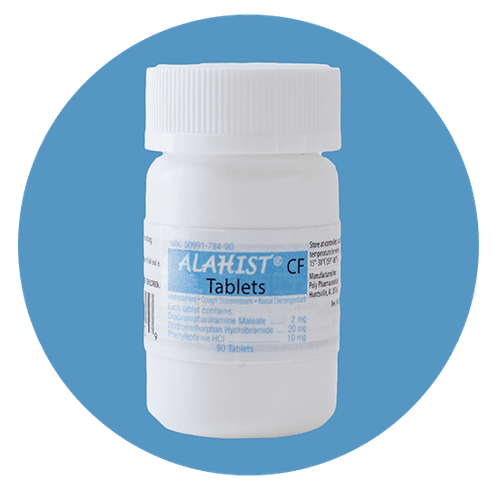This is an automatically translated article.
Alavert medicine is often prescribed by doctors in cases of hay fever or seasonal allergy symptoms. To prevent drug interactions and serious side effects, patients should fully follow their doctor's recommendations about the use of alavert.
1. What is Alavert?
Alavert belongs to the group of antihistamines, used mainly to treat the symptoms of hay fever or seasonal allergies, such as itchy eyes, watery eyes, runny nose, sneezing, itching. throat, runny nose, ... thereby helping the patient feel more comfortable and comfortable. Alavert medicine contains 2 main active ingredients, including loratadine and pseudoephedrine, specifically:
Active ingredient loratadine is an antihistamine, which helps relieve symptoms of allergies and hay fever. Active ingredient pseudoephedrine has a decongestant effect, relieves symptoms of nasal congestion, and helps improve breathing through the mechanism of promoting sinus drainage. Alavert is not recommended for use in children under 2 years of age because it contains a large amount of the active ingredient pseudoephedrine.
2. Indications for use of Alavert
Alavert is indicated for use in the following cases:
People with fever symptoms caused by allergies to dust, pollen or other substances in the air. People with itching or redness of the skin, however, do not use alavert to prevent skin rashes or allergies. Alavert is indicated for people suffering from hay fever.
3. Dosage and how to use Alavert
3.1 Dosage of Alavert drug The dose of Alavert drug will be determined based on the age and age of each patient, specifically:
Dosage for adults and children > 6 years old: Take 2 teaspoons of alavert, Avoid taking more than 2 scoops in 24 hours. Dosage for children 2 - 6 years: Take up to 1 teaspoon of alavert in a day. However, it is necessary to monitor the child carefully during the use of the drug to promptly intervene if side effects occur. Dose for children < 2 years: Use of alavert is not recommended unless directed by a doctor. 3.2 How to use Alavert drug Alavert drug is prepared in the form of a syrup, so patients should take the drug orally according to the dose prescribed by the doctor. You need to measure the dose of alavert with a fractional dosimeter to ensure high accuracy.
Before using Alavert, you should carefully read the instructions printed on the product packaging to help understand the use and expiry date of the drug. Avoid using the drug in higher doses, lower or longer than the duration of treatment with alavert recommended by your specialist. Arbitrarily adjusting the dose can affect the action of the drug and significantly reduce the effectiveness of treatment.
Also, do not use Alavert within a few days before your allergy test because it can affect the accuracy of the results. Ideally, patients should discuss with their doctor to understand the necessary information when taking Alavert.
On the other hand, during the course of treatment with Alavert and notice that the health condition does not show any signs of improvement, the patient should notify the doctor to adjust the dose of the drug so that it is more suitable.
4. Alavert . side effects
In certain cases, the use of Alavert may cause the following common to rare side effects:
Common Alavert side effects include:
Dry mouth, pain fierce head. Nosebleeds of unknown cause. Mouth sores, sore throat, red eyes with itching sensation. Constant sleepiness. Feeling anxious or restless. Diarrhea, abdominal pain. More rare serious side effects of Alavert include:
An itchy rash or hives on the surface of the skin. Swelling of the face, lips, eyes and tongue. Signs of a severe allergic reaction appear on the ankles, feet or arms. Hoarseness for unknown reason. Difficulty breathing, swallowing or wheezing. Side effects may vary from person to person. Therefore, patients need to monitor the body's manifestations during treatment with Alavert.
5. Some measures to prevent side effects of Alavert
In Alavert medicine contains 2 main active ingredients, loratadine and pseudoephedrine, patients should tell their doctor if they have a history of allergy to these 2 substances or to another substance with a mechanism similar to desloratadine. In addition, before treatment with Alavert, you need to specifically declare to your doctor all about your medical history and existing health conditions, especially the following cases:
Have liver / kidney disease. Have problems with urination, such as an enlarged prostate gland. Diabetes or high blood pressure. Certain heart problems, such as coronary heart disease. Have glaucoma. Have thyroid problems, such as hypothyroidism or hyperthyroidism. Alavert can cause dizziness as a side effect, which is especially aggravated when you drink alcohol. Therefore, people with occupational characteristics that require intense concentration, such as driving a vehicle or using machinery, it is best to stop working until the dizziness has completely disappeared. In addition, all patients being treated with Alavert should limit or avoid alcohol to prevent unwanted reactions.
For older people when using Alavert medicine, they may be more sensitive to the side effects that the drug brings, especially dizziness, trouble sleeping, confusion, difficulty urinating or irregular / fast heartbeat . Side effects such as confusion, trouble sleeping or dizziness can increase the risk of falls and injury in the elderly, so this person needs to be very careful during allergy medication treatment. alavert.
6. What drugs can interact with Alavert?
Drug interactions can change the effectiveness of the drug or lead to a higher risk of dangerous side effects for health. Therefore, before using Alavert, patients should inform their doctor of all medications they are taking to prevent drug interactions.
According to research, when Alavert is used together with an MAO inhibitor (eg linezolid) can cause serious drug interactions. As recommended by the physician, patients requiring treatment with alavert should avoid the use of the following MAO inhibitors:
Linezolid. Isocarboxazid. Phenelzine. Moclobemide. Rasagiline. Selegiline. Safinamide. Tranylcypromine. Procarbazine. If you must use an MAO inhibitor, you should stop using it for 2 weeks before starting treatment with Alavert. In addition, a number of other drugs can also interact with alavert, including:
High blood pressure medications such as beta-blockers, methyldopa or guanethidine. Drugs similar to adrenaline such as methylphenidate or ephedrine. Tylenol®. Vitamin C, B12 or vitamin D3. Fish oil or products containing omega-3 unsaturated fatty acids. Herbal products containing ephedra. In addition, patients should also carefully check the labels on all medicines they are taking, including cold and cough products. These medicines may contain the same active ingredients in Alavert and increase the risk of side effects. On the other hand, Alavert is also capable of affecting the results of some laboratory tests, including allergic skin tests.
Hopefully with the sharing of Alavert medicine, it will help you understand the drug and have a suitable use.
Please dial HOTLINE for more information or register for an appointment HERE. Download MyVinmec app to make appointments faster and to manage your bookings easily.
Reference source: drugs.com












